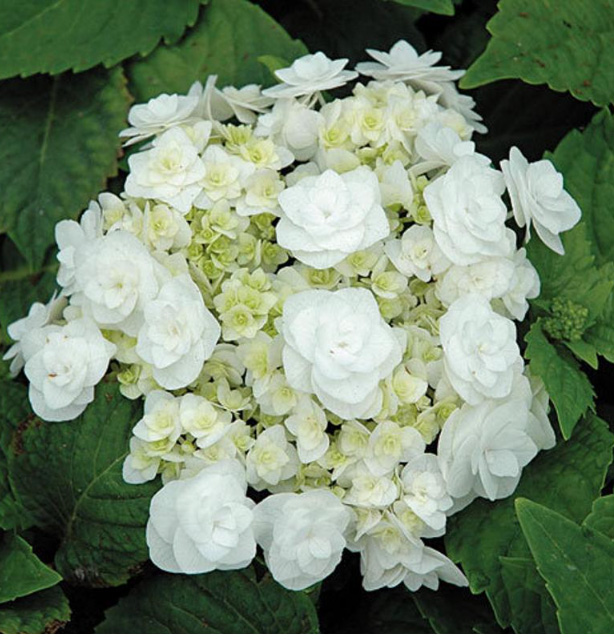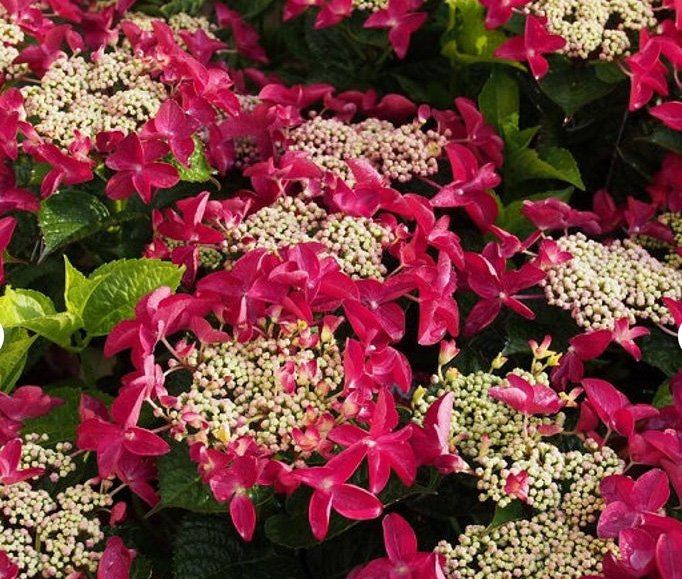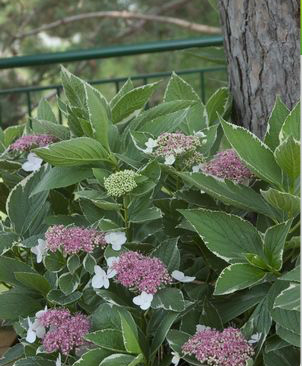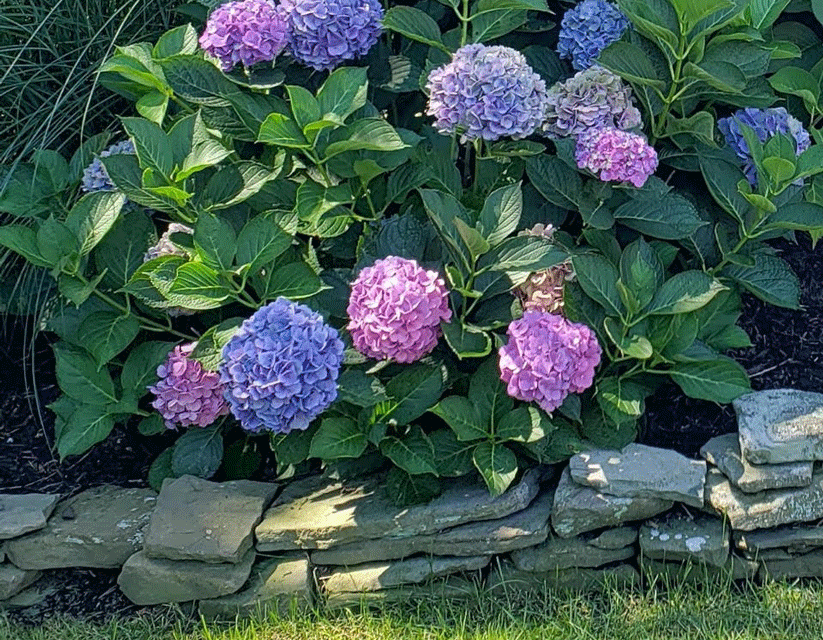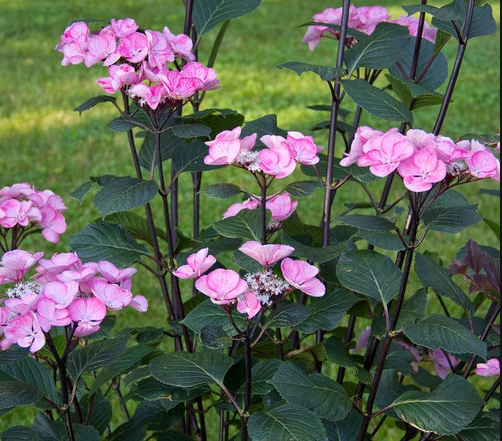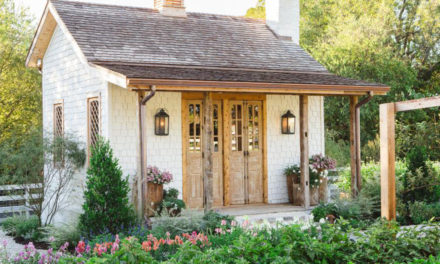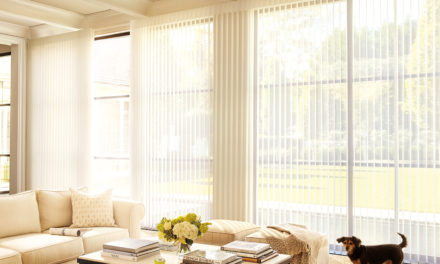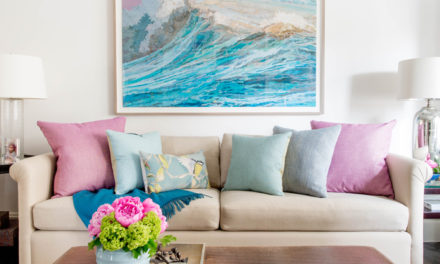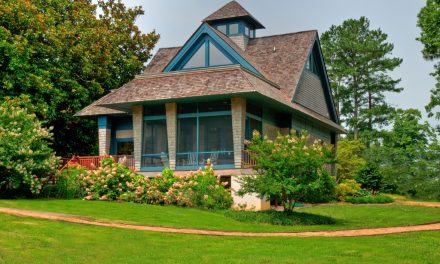In memory of our friend and contributing garden writer, Sandi Manna, who would want us to make our gardens as beautiful as they can be.
Mophead (Hydrangea Macrophylla)
Mophead hydrangeas, also sometimes called Bigleaf, grow in full sun to part shade. They come in shades of blue, purple or red. There are a number of reblooming hydrangeas that will give you color all season. They start blooming in early summer and bloom just about through frost. These shrubs do best in moist, well-drained soil.
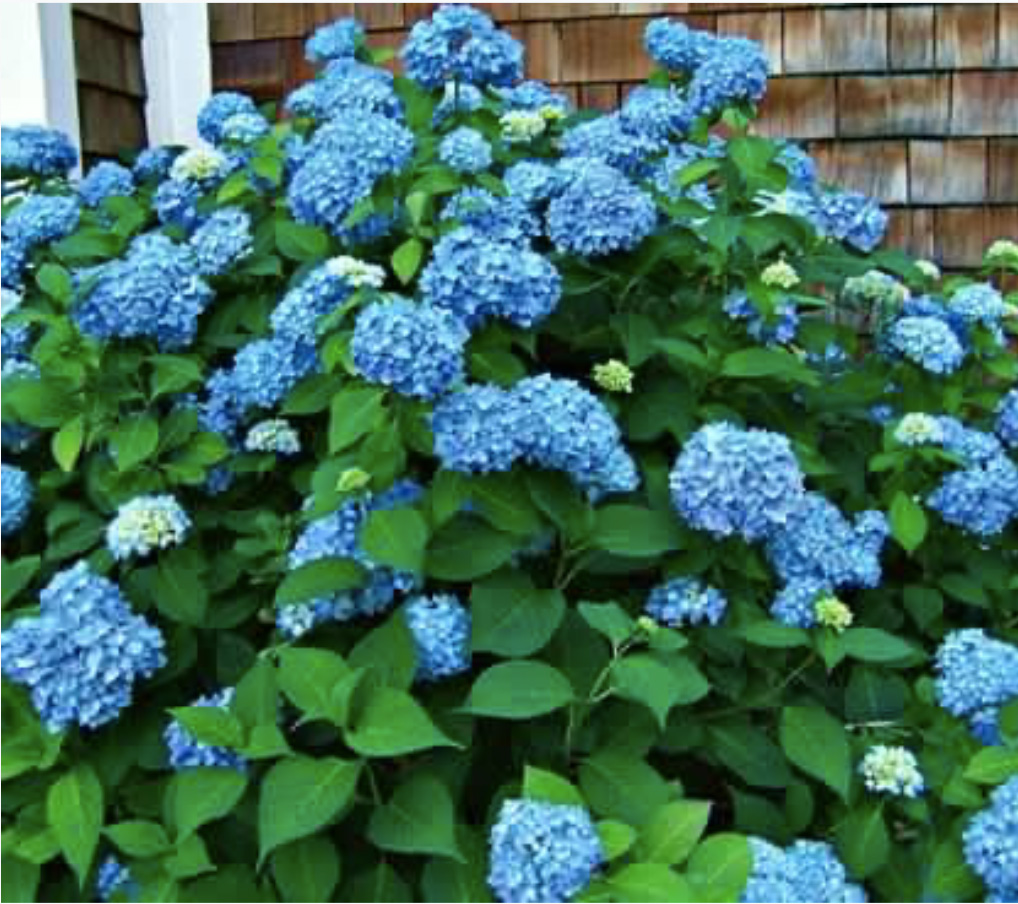
As long as they get a minimum of 1” of water once a week (twice a week when it’s hot) you should be fine. Cutting faded blooms will encourage the shrub to keep producing flowers. For most of the shrubs in these series, soil pH will affect color. If you’re like most and you want blue, then you’re in luck. To get blue hydrangeas you need acidic soil (Connecticut is typically acidic). If your blooms aren’t blue enough, or you’re looking for pink, there are various soil amendments that will do the trick.
My Favorite Varieties:
Hydrangea Macrophylla ‘Endless Summer’ bears mophead clusters of pink or blue flowers (pH dependent) and grows 5 feet tall. Prefers mostly sun. (Above, Image Courtesy of Prides Corner Farms) If you’re looking for a slightly smaller variety try Hydrangea Macrophylla ‘Onyx Peacock’. Large, prolific pink, blue or purple flowers (pH dependent) are born on sturdy black stems. Yes, you read correctly. Black stems! Blooms on old and new wood so you don’t have to worry about pruning. This is a standout hydrangea that will have your friends talking! Prefers mostly sun. 4′ tall 1.5′-2′ wide. (Right, Image Courtesy of Concept Plants)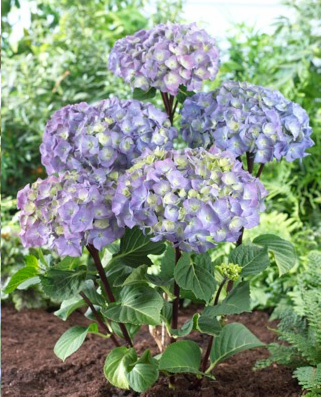
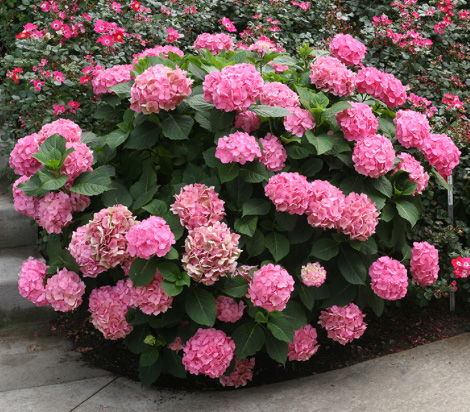
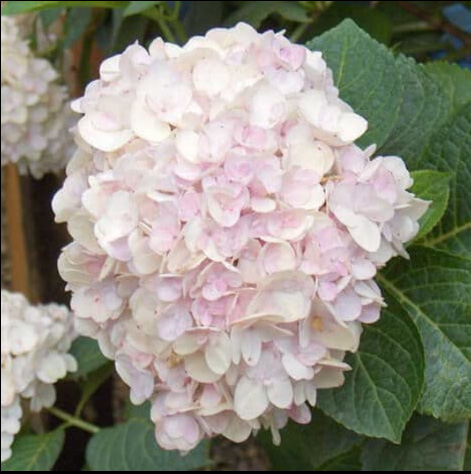
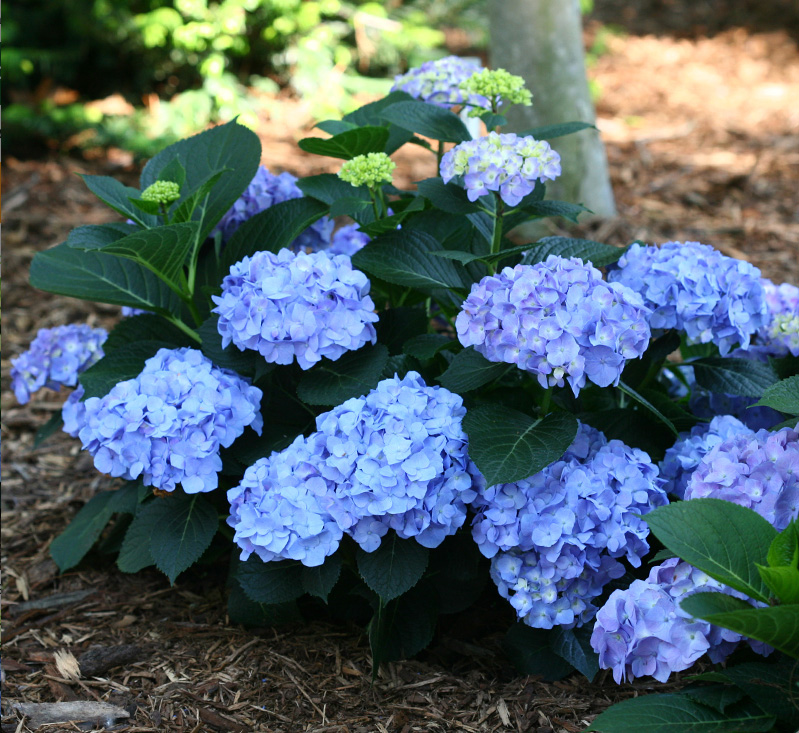
Lacecap (Hydrangea Macrophylla)
You’ll notice that Lacecap hydrangeas also belong to the species Hydrangea Macrophylla. The primary difference between a lacecap and a mophead is the flowers. Mopheads have large, round pom-pom like flowers. Lacecaps have tight, compact buds in the center of the flower surrounded by larger, showier petals along the outside. This look gives them their lace-like appearance – leading to the name “Lacecap.”My Favorite Varieties:
Hydrangea Macrophylla ‘Double Delights Wedding Gown’ is simply stunning. Deep green foliage and pure-white lacecap flowers that bloom earlier than almost any other macrophylla type Hydrangea. These flowers continue profusely until October. Unlike most macrophyllas, this stunner prefers shady spots. Like many newer varieties, Double Delights Wedding Gown blooms on old and new wood, so it takes the guesswork out of pruning. Prefers partial to mostly shade. 3-4′ tall, 4-5′ wide. (Below, Image Courtesy of Monrovia)